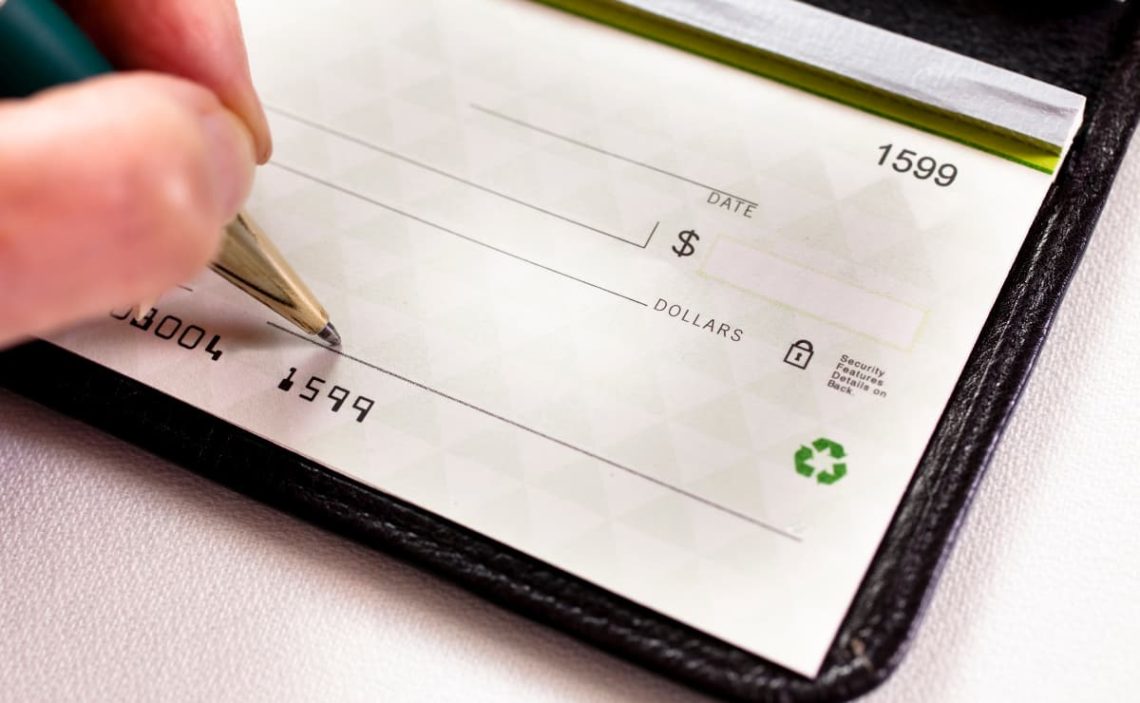Do all banks cash third-party checks? This question does not have a simple answer since, as we will see, it is a nuanced discussion. It is possible to cash a third-party check at nearly every bank or financial institution.
However, as you will see below, you should follow specific steps and take some aspects into account.
What is cashing a third-party check?
This is a simple concept: it is to cash a check at a financial institution signed by someone other than the person requesting the cashing. For many, the fastest way to withdraw money in financial institutions is through the use of checks.
However, when you redeem a third-party check, you are cashing someone else’s account. Therefore, the bank might take some precautions, as we will see below.
What are the security tools for third-party check payments?
Today’s financial institutions have a lot of security tools. While, in the past, third-party check forgery was a significant problem, the frequency with which this happens has slowly been decreasing. It doesn’t mean that fraud or attempted fraud no longer exists, but it has been greatly minimized. In addition to tools for digitally verifying the document’s legality, financial institutions can bring other security elements into play. The most common is the identification of the collector. This identification is generally requested each time a third-party check is cashed.
In many cases, this means we may not be offered immediate collection. The alternative would be for the collector to have a bank account open in the entity that the check could be deposited in. In this case, a certain amount of time may elapse before the money is credited.
As a stronger form of security enforcement, financial institutions may verify the legality of the check by contacting the supposed issuer. In case there’s doubt about the legitimacy of the signature, this is a mandatory procedure.
Do all banks accept third-party checks?
As stated at the beginning of this article, most financial institutions in the United States do accept third-party checks. But, even if it is a vast majority, there are still some exceptions.
The best way to avoid problems in this regard is to refer to the terms and conditions of the financial institution with which you wish to cash the check. If a third party issues a check for you, you should consult them for the terms and conditions of the financial institution holding the payment. Alternatively, you can try to contact the institution through the Internet or by telephone to avoid the problem of going to a branch and not being able to cash the check.
In cases where direct payment for your third-party check is rejected at the teller window, you may have some alternatives. As we said before, the most common is to have an account or card in the paying entity. In this way, it is easier to make the deposit directly.
In any case, there are some financial institutions (really very few) that will not accept that you cash in a third-party check in any way. In these cases, you should look for other alternatives to the deposit.
Are third-party checks risky?
As a matter of fact, although the risk associated with checks has been greatly reduced, it still exists. We could point out three different types of risk. Whenever we are going to accept one of these paychecks, we must take these elements into account.
- The first is quite simple: the lack of funds in the account associated with the check. As collectors, we will not know the funds’ availability in the statement issued by a third party. We depend on the will of the person giving the check. Therefore, in case of doubt, it is important to insist on this aspect with the check issuer. Keep in mind that a bad check cannot be credited in any case. In addition, it can generate some added problems with the entity in which you intend to cash it.
- The second important risk element is the counterfeiting of a pay stub. Much less frequent but still present on the market. This type of fraud was widespread in the last century. Today, it is usually associated with clearing small payments to third parties. The best way to avoid this fraud is to not accept dubious checks or checks from unverified issuers.
Finally, the third risk element is spoilage in the case of physical checks. Most physical checks are still made of paper, and although they have incorporated security features, they are easy to deteriorate. It is very important to keep them in a safe place. Do not expose them to humidity, dirt, or any potentially harmful environments. A deteriorated check can never be cashed, especially if the damage concerns the identification, control, or security elements.
Journalist and historian. Writing content for the internet full time since 2009. He has collaborated and continues to collaborate in some of the main networks of blogs on economics and finance in Spain, Mexico and the United States among other countries, writing in both English and Spanish.
He specializes in content on personal finance management, insurance, savings, investment, etc., although he has written and supervised for other types of topics throughout his more than twelve years of experience in internet content.
Some samples of his work over the years in FinancialRed, Bolsa24, or Euribor.com.


